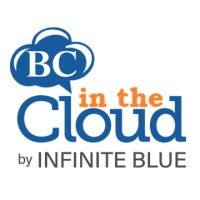How much downtime would your business rack up if your office building lost power for a day? Businesses without a disaster plan are doomed to fail, with 93 percent of them who suffer a data disaster going out of business within a year. Business continuity management is critical for preventing downtime due to natural disasters, ransomware, or power loss.
Business continuity management overview
- What is Business Continuity Management?
- What should Business Continuity Management cover?
- Best Business Continuity Management Systems
- Oracle Risk Management Cloud
- iGrafx
- Fusion Framework System
- SAI360
- Castellan Software
- BC in the Cloud
- Archer Business Resiliency
- RPX by RecoveryPlanner
What is Business Continuity Management?
Business continuity management (BCM) is a set of processes that covers disaster recovery, incident response, crisis management, and other issues that could disrupt business operations to prevent the loss of data and productivity. Organizations often build and store these processes in business continuity management software. BCM software is also mandatory for many industries, including financial services and healthcare.
Also read: Make Incident Response Planning Easy with this Free Template
What Should Business Continuity Management Cover?
Business continuity management should cover anything that could reasonably cause downtime or major harm for your business. Some of these scenarios include:
- Power loss
- Natural disaster
- Internet outage
- Data breach
- Global pandemic
While some of these are clearly more serious than others, all will impact your employees’ ability to perform their job functions. Plus, they may put your customers at risk, depending on your organization’s industry. For example, a power outage could endanger lives in a hospital without a proper backup plan.
The plan your business creates should include an overview of all the critical processes your organization has, as well as a prioritized list of risks it faces. It should also include mitigation activities for each of those risk scenarios. As you test your business continuity plans, you should add reports that display new vulnerabilities, so you can update plans and processes over time.
Also read: IoT Adds Complicated Layer to Risk Management
Best Business Continuity Management Systems
To find the best business continuity software for your organization, check out these tools. Each of them has great customer reviews and full feature sets.
Oracle Risk Management Cloud
Oracle Risk Management Cloud uses artificial intelligence (AI) and automation to prevent fraud and make business processes more flexible. Geared more towards security breaches, it quickly certifies access to sensitive functions and data to ensure that only authorized users gain entry. It also continuously monitors financial transactions, user activity, and changes to critical processes to identify anomalies faster and prevent harmful activity. Businesses can also use the platform to track any compliance issues they have and work towards remediation.

Pros
- Speeds up compliance fixes
- Organizations can create rules to reduce false positives
- Is customizable to meet a business’s needs as they change over time
Cons
- The interface isn’t very efficient without improvements
- There isn’t much variety in the reporting options
iGrafx
iGrafx helps organizations create processes they need to continue running even when disaster strikes. It includes compliance checks for ISO, HIPAA, GDPR, and more to work for a variety of industries. With visibility into more of their critical processes, businesses can improve their compliance and keep operating as normal even during a major issue. Visual maps make it easier to build processes and prepare for risks while identifying which processes are most critical for day-to-day operations.

Pros
- Good usability makes it easier for adoption across multiple departments
- Keeps process knowledge accurate and up to date
- Easy to automate process maps and share them with leadership
Cons
- Some users have had difficulty integrating it with other tools
- The program can sometimes lag, even with simple processes
Fusion Framework System
Fusion Framework System allows organizations to simulate disaster scenarios and work through them, so they’re ready to face the real thing if and when it happens. Role assignments help employees know exactly who’s responsible for what during an emergency and who they should communicate with. With impact tolerances, companies can automate their initial response protocols by setting a threshold for downtime, lost productivity, or other factors. Fusion also easily integrates with a variety of enterprise applications to add resilience to all of a company’s processes.

Pros
- Consolidates key elements of incident response and crisis management for better visibility
- New features become available with frequent updates
- The platform is very flexible to fit different businesses’ needs
Cons
- No option for live chat support
- The learning curve can be fairly steep
SAI360
SAI360 is a cloud-based platform that helps businesses manage their risk and plan for disasters. It offers a mobile app that’s simple to use and gives users real-time notifications and the ability to manage relevant tasks. The process modeling features make it easy for businesses to create new processes and modify existing ones to automate risk management and compliance activities. Many of the dashboards are ready to go out of the box, but organizations can also configure them to meet their specific needs.

Pros
- Helpful solution right out of the box while still allowing for configuration
- Support staff offers personalized attention to solve issues or answer questions
- User-friendly reporting and dashboard features
Cons
- The support team for small projects seems to be under-resourced leading to long wait times
- Training seems to be skewed towards an English-speaking audience, so users that speak other languages may struggle a bit
Castellan Software
Castellan Software offers end-to-end planning for business continuity management, consolidating all of an organization’s activities into one platform. It offers single sign-on (SSO) and two-factor authentication to make it easier for authorized users to access the program while keeping out malicious actors. Plus, the cloud-based nature of the platform improves deployment and implementation time. With a business impact analysis, companies can determine how different issues might impact their operations and outline the steps they need to take to mitigate the damage. Then they can test those plans and modify them as necessary.

Pros
- The interface is user-friendly and easy to understand
- Technical support is helpful and responsive
- Reporting is fast and provides critical information
Cons
- The platform isn’t as customizable as some of the others on this list
- Some users have had trouble with SSO on the mobile application
BC in the Cloud
BC in the Cloud by Infinite Blue pairs software-as-a-service (SaaS) solutions with managed services to give businesses the support they need to create successful business continuity plans. The cloud-based nature of the platform ensures that business continuity plans are accessible even when local servers are unavailable. Pre-defined templates and process maps make it easy for organizations to implement the program, but they are all configurable, so users can customize them as necessary. The dashboards and reporting features also help identify areas of the business that are vulnerable to incidents.

Pros
- Easy and intuitive to use right out of the box
- The features are scalable and customizable
- The implementation team is helpful and customer support is very responsive
Cons
- Requires some level of coding knowledge to get the most out of the tool
- Advanced reporting capabilities are limited
Archer Business Resiliency
Archer Business Resiliency helps businesses identify and catalog the processes that are critical to their organization and develop continuity plans to keep those processes running even during a disaster. The platform provides more visibility into the risks businesses face, making it easier for risk management teams to justify their budgetary and resource needs to executives. By tracking and cataloging incidents as they happen, companies can prioritize issues and quickly determine which steps they need to take to remediate them and assign tasks to the appropriate team members.

Pros
- The workflows are customizable and give businesses full control over their procedures
- Offers a lot of detailed information
- Useful for tracking and storing audit results
Cons
- The UI is not completely user-friendly
- Requires some coding knowledge to fully utilize all of the features
RPX by RecoveryPlanner
RPX by RecoveryPlanner combines business continuity, incident response, cybersecurity planning, vendor management, and more to create a comprehensive risk management solution. This helps businesses keep all of their risk-related information in one place and improves visibility into the processes surrounding BCM. The interface and support are available in multiple languages, perfect for multinational corporations. The mobile application also makes it easy for team members to handle their incident response tasks even when they aren’t in the office.

Pros
- The support team is helpful and clearly wants to solve issues
- Training helps teams determine the best ways to use the software
- Customizable to meet different business requirements
Cons
- Not all of the features are available through the mobile application
- Some customers have experienced slow load times and glitches in the program
Read next: Disaster Recovery Across Hybrid Cloud Infrastructures


